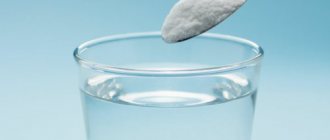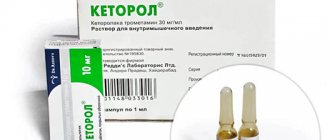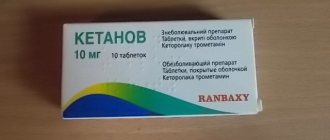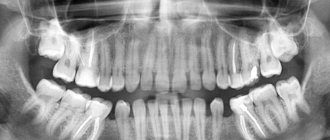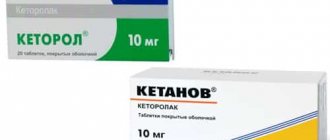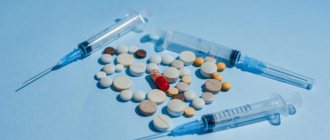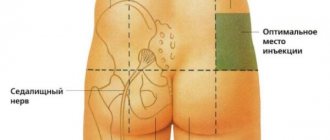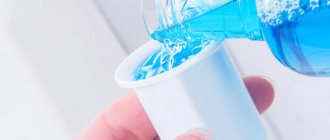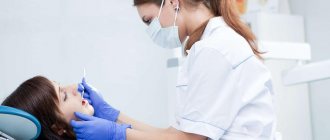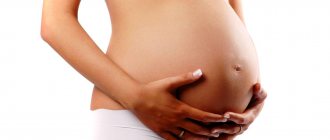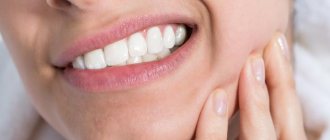If it is necessary to get rid of a toothache, it is customary to use painkillers, since toothache cannot be tolerated. But what if acute toothache occurs during breastfeeding? What will help relieve pain in a tooth or gum and how safe is it for the baby’s health? Almost every nursing mother turns to dentists with these questions, because not everyone had the opportunity to have their teeth treated during pregnancy, and the causes of pain can be different. Even a mother who carefully monitors her health is not immune from the loss of an unsuccessfully installed filling or thinning of the enamel, since her body is under a lot of stress.
The causes of toothache are always varied, and no one, even the most careful nursing mother, is immune from them.
Why does toothache occur during toothache?
When a toothache occurs during breastfeeding, the first question that arises is: why does the tooth hurt? The answer is obvious - after childbirth, the female body does not recover immediately, hormones return to normal, the nursing mother experiences stress, and in parallel with the lack of useful microelements in the mother’s body, the sensitivity of the teeth increases. This is why during lactation women often turn to dentistry, especially in the first couple of months. And the causes of toothache are always varied:
- advanced caries, which a pregnant woman for some reason did not cure;
- A nursing mother can inherit oral diseases from her baby, for example, stomatitis, which often occurs in infants;
- minor scratches or damage with a weakened immune system can lead to gum inflammation, causing a lot of inconvenience;
- outdated or incorrectly placed seal;
- thin tooth enamel, as well as inflammation of the tissue directly at the roots of the tooth.
Prohibited painkillers
Citramon and aspirin are dangerous for a child; they lead to disruption of the liver. In addition, citramone contains caffeine, which has a negative effect on nerve cells. Caffeine disrupts sleep and causes the newborn's body to become agitated. This is why it is not recommended to drink coffee during lactation, at least for the first six months. For coffee lovers, you can replace the drink with chicory.
Analgin is dangerous not only for children, but also for adults. This drug has long been banned in dozens of countries around the world, but in Russia the tablets are still popular. Analgin effectively relieves pain, but has many side effects. This is a toxic drug that changes the composition of milk and reduces lactation. It impairs hematopoiesis and negatively affects kidney function.
Nimesulide is classified as an NSAID, but it is not advisable to take this drug during breastfeeding due to the lack of specific data on the effect of the drug on the newborn and milk.
In addition, a nursing mother should not take combination products that contain several active elements. This increases the risk of allergies. Often these drugs contain Codeine, which suppresses the child’s activity and mental activity.
Keep in mind that any substance can cause an allergic reaction.
Depends on genetics and the individual development of the baby. If your child feels worse after taking medication, stop taking it immediately and consult a doctor! Subscribe to our VKontakte group
What will help relieve pain at home?
Absolutely every person uses painkillers for toothache, the only thing is that when breastfeeding, the list of such drugs is much smaller. No one dares to say that a nursing woman must endure debilitating toothache; usually there is no question of whether to take medicine or not. The question arises - what are the best painkillers to take?
Drug treatment
If you need to numb your gums or relieve toothache before going to the clinic, you can use medications based on Paracetomol and Ibuprofen. These drugs are the safest for breastfeeding, because the baby gets the smallest dose of medicinal particles with milk. And their half-life is about 3-4 hours, so you can take the product immediately after the next feeding, and then by the next time the product will be in the mother’s body in minimal quantities. At the same time, dental treatment should not be postponed for long, because modern medicine can offer effective pain relief during treatment. Dentists use Lidocaine as anesthesia; the drug is also quickly eliminated from the body and is recommended during breastfeeding.
For acute and severe pain, folk remedies will not be particularly effective, but they will help relieve the pain a little.
Folk remedies
To relieve toothache, there are some simple recipes from folk remedies. Decoctions of herbs and plants, for example, a decoction of oak bark, which should be used for rinsing the mouth, are good for pain relief during breastfeeding. For acute and severe pain, this remedy will not be particularly effective, but it will help relieve the pain a little. In addition, chamomile, St. John's wort and lemon balm have proven themselves well. Cloves, better known as a seasoning, are also safe during feeding; it is better to use its oil, but in the absence of clove oil, it is recommended to chew a small amount with a sore tooth. The method of rinsing with a soda solution is also familiar to many - 1 spoon of soda is diluted in a glass of water and rinsed throughout the day, you can add iodine or salt.
Approved medications for breastfeeding
It’s easy to find out what kind of painkillers you can take during breastfeeding, because you know what medications are allowed for your baby as pain relief or for fever. If the baby is allowed, then a woman can also use it during lactation.
Tablets with analgesic effect
Approved tablets for breastfeeding
The active ingredients of approved drugs are mainly ibuprofen and paracetamol. Recommended for use:
- Paracetamol or similar Panadol.
- Ibuprofen or similar Nurofen, Ibuprex, Ivalgin.
- Ketoprofen. Effective for muscle pain.
- Diclofenac, or analogues Voltaren, Diclak, Ortofen.
- No-shpa.
These drugs are allowed to be taken from time to time. They are effective for headaches, colds and flu, and muscle spasms.
Do not exceed the dosage limits for approved medications. There are cases when an overdose can cause cessation of lactation. During administration, you need to monitor the child’s reaction: if a negative reaction occurs, you must stop using the drug.
Pain relieving ointments
Permitted ointments for breastfeeding
After childbirth, back pain sometimes occurs. Whenever possible, women limit the use of oral medications and use ointments. Therefore, it is necessary to know which pain-relieving ointments can be used, since the drug is not always harmless. Permitted ointments include:
- Nurofen-gel;
- Chondroxide;
- Menovazan;
- Biopin;
- FinIce;
- Ibuprofen (take carefully, in small quantities, monitor the baby’s reaction);
- Arthrolight, Malavit, have a herbal composition;
- Traumeel-S.
Before use, it is necessary to check for allergic reactions. Even if there were no allergies before, before pregnancy, it does not mean that they will not appear now. The fact is that the hormonal balance in the body has changed.
Candles against pain
The suppositories contain analgesics that provide local anesthesia. These drugs are rectal and vaginal, but not all suppositories are approved as pain relievers during lactation. These include: Ibuprofen, Movalis, Cefekon - they are acceptable for use by children. The use of Ketonal suppositories is also allowed.
Painkillers prohibited during hepatitis B
No matter how leaps and bounds modern medicine moves forward, most painkillers are still prohibited for use in cases of guards. First of all, these are products containing:
- Acetylsalicylic acid, which is strictly prohibited during breastfeeding, can even lead to problems in the development of the infant or provoke acute liver failure;
- Analgin - is part of such drugs as Baralgin, Pentalgin, has an extremely negative effect on internal organs, especially the kidneys and liver, and also causes inflammation of the stomach;
- Codeine, in its pure form, is rarely used for dental pain relief, but is contained in Nurofen Plus, Sedal-M. During the digestion process, it turns into morphine and negatively affects the health of the mother and baby - from increased drowsiness to difficulty breathing.
Recommended pain relievers for breastfeeding
Painkillers for toothache
During pregnancy and while feeding the baby, there is a lot of stress on the mother’s body and teeth. The main cause of dental disease is a lack of calcium, changes in hormonal balance, and loss of beneficial components. For hepatitis B there is also a list of approved drugs. The onset of pain can be tolerated and you can use folk remedies, but if you cannot visit the dentist in the near future, and the pain becomes unbearable, a nursing mother is allowed to use the following medications:
- Lidocaine or similar Ultracaine: its use involves local use in the form of injections for sanitation procedures and for medical procedures;
- Kenatov: the pill will temporarily relieve severe pain. It will not eliminate the origin of pain; the action is aimed at reducing pain. Use no more than twice, no longer than three days.
Ointments can be used as pain relievers for toothache. These methods of alleviating pain are allowed for a baby when teething, which means that a mother can also use them for toothache:
- Kalgel, based on Lidocaine.
- Traumeel.
- Kamistat Baby in the form of a gel: in addition to Lidocaine, it contains chamomile.
- Dentol Baby - has a cooling, analgesic effect, relieves inflammation.
It is worth considering that all of these drugs can be taken, but they have a short-term effect and eliminate pain temporarily; if possible, you should immediately visit the dentist.
Painkillers for headaches
Headache is a common symptom. Fatigue, lack of sleep, worry about the baby, milk, etc. are the main reasons. Changes in hormonal balance also become a frequent cause. It often goes away without taking medications; it is enough to use folk remedies or a head massage.
A nursing mother is allowed the following painkillers to relieve pain:
- preparations with Paracetamol (Strimol, Efferalgan, Panadol);
- Nurofen, Avil, Ibufen with Ibuprofen in the composition.
Pain relief during feeding is a necessary measure. First, it is recommended to use gentler methods: relax, take a walk in the fresh air.
Painkillers after caesarean section
Pain syndromes in the groin area are a companion to the first months of a woman who gave birth by cesarean section. What pain reliever can nursing mothers use in such situations? Allowed:
- No-spa: as pills and injections, taken after childbirth, non-systemically;
- Ultracaine is effectively used by gynecologists and is not dangerous for nursing mothers;
- Ketoprofen, Ibuprofen.
In case of prolonged pain, if there is discharge and the suture does not heal well, it is recommended to consult a doctor.
Prevention of tooth pain during lactation
After childbirth, special attention should be paid to prevention:
- just as in normal times, do not forget to brush your teeth 2 times a day and for at least 2 minutes;
- The old brush should be replaced with a new one, choose medium hardness and change approximately once every three months;
- visit the dentist periodically, or even better immediately after childbirth, to assess the extent of recovery;
- eat foods containing calcium;
- reduce consumption of sweets;
- use mouthwash and dental floss, especially after meals;
- use medicinal and strengthening toothpastes.
Even a minor attack of toothache is a reason to immediately consult a dentist. You should not start the process by referring to breastfeeding, since the pain itself is already stressful for the mother. And the lack of timely treatment can lead to the most negative consequences, including suppuration and subsequent hospitalization, which will not benefit any nursing mother. To avoid this, you need to buy painkillers approved for breastfeeding in time, and immediately after the first pain symptoms appear, consult a doctor.
Recommendations for use in breastfeeding mothers
If a woman during lactation decides to take Ketorol, she should choose tablets. They contain the lowest concentration of the main active ingredient. The instructions say that the drug should be taken 3-4 times a day, one tablet. The duration of therapy cannot be more than five days. This is too much for a nursing mother, so doctors recommend sticking to a single dose.
Breastfeeding specialists advise skipping 2-3 breastfeedings after taking the pill and breastfeeding the baby after at least 6 hours. Children do not easily tolerate such a long break, so it is advisable to express milk in advance. Remember that at room temperature the liquid remains fresh for no longer than 4-6 hours; on the refrigerator shelf it is stored for 24-48 hours.
The injection solution contains the highest concentration of ketorolac, so it is prescribed exclusively on a stationary basis and only when the tablets are powerless.
It is important! The drug thins the blood, increasing bleeding. Therefore, it is better for women during the menstrual period to avoid Ketorol.
The medicine in gel form penetrates little into the blood and milk. During breastfeeding, doctors allow women to apply Ketorol gel to the problem area up to 3 times a day. The course of treatment cannot exceed 5 days.
